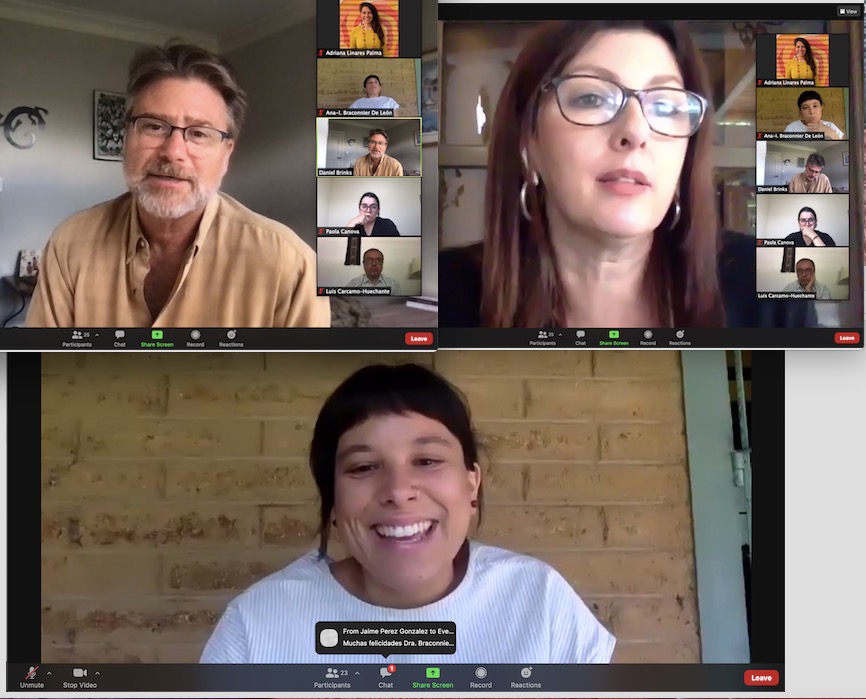Congratulations to PluriLands research team member Ana Braconnier, whose PhD was approved in July. Ana’s dissertation on the politics of constitutional justice and backlash in Guatemala is entitled “Disputing Extractivism at the Court: Elite Countermobilization and Backlash in a (Still) Colonial Guatemala”. Ana majored in political science at the University of Texas in Austin. Her dissertation was supervised by LawTransform fellow Professor Daniel Brinks; Dr. Rachel Sieder participated in Ana’s dissertation committee.
Disputing Extractivism at the Court:
Elite Countermobilization and Backlash in a (Still) Colonial Guatemala
Ana-Isabel Braconnier De León, Ph.D.
Lozano Long Institute for Latin American Studies (LLILAS)
The University of Texas at Austin, 2021
Supervisor: Daniel M. Brinks
Abstract
My dissertation examines the process of backlash against the dissident constitutional magistrates and the support structures that aid them in promoting accountability and human rights in Guatemala from 2017 to 2019. While scholars noted that courts took a predominant role in Latin American politics in the last forty years of democratization, less attention has been given to the increasing challenges that courts are facing to remain independent from powerful actors. The theories have some difficulty accounting for a backlash against the courts, because the “strategic” models of judicial behavior predict that vulnerable magistrates in less independent systems are more likely to act in deference to the powerful. The Guatemalan case shows the opposite. In the context of magistrates expected to align with the dominant elites, why did a backlash against the Constitutional Court occur? How did it happen, and what are the implications for the constitutional justice system?
I argue that backlash is triggered when the courts produce rulings challenging the “red lines” of the regime—what matters most to the political and economic elites. In Guatemala, the anti-extraction rulings challenged the elites’ core interests based on the extraction of public resources through corruption and natural resources in Indigenous territories. Backlash happened when powerful elites activated judicial advantages to “re-colonize” legal interpretations, coalesced to dismantle dissident magistrates and the support structures, and captured the institutions. My focus sheds light on the persisting role of elites in limiting the scope of accountability and social change through the courts. These limits reveal not only the continuity of a conservative status quo but also the colonial foundations of an extractive regime.
I develop my argument through an in-depth qualitative study of four rulings that triggered backlash. The rulings sought to promote the Indigenous right to free, prior, and informed consultation and efforts fighting corruption. In building my theory, I analyze the logistical features of the fieldwork and my position as a local researcher conducting activist research with advocacy organizations. My methods include semi-directed interviews, secondary sources, and ethnographic work. I conclude with a comparative perspective in Latin America, and propose institutional mechanisms that can leverage Indigenous claims for justice.

